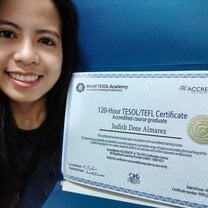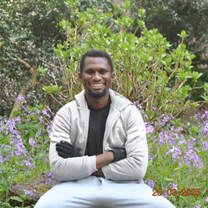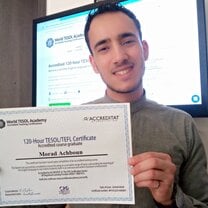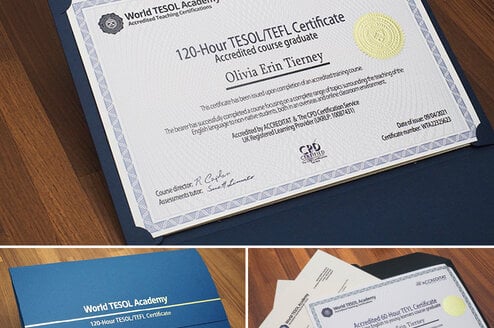Why did you choose this program?
I chose the accredited 120-hour TESOL/TEFL program to enhance my skills in teaching English to speakers of other languages. This certification allows me to effectively communicate and teach in diverse cultural settings, enriching my volunteer work and supporting my passion for education and travel...
What did your program provider (or university) assist you with, and what did you have to organize on your own?
My program provider assisted me with comprehensive course materials, guidance from experienced instructors, and a structured curriculum to ensure I met the requirements for TESOL/TEFL certification. I had to organize my study schedule, complete assignments independently, and manage any additional resources needed to supplement my learning.
What is one piece of advice you'd give to someone going on your program?
One piece of advice I'd give to someone considering this program is to leverage your organizational skills. As a very organized person, I found that creating a structured study plan and setting regular goals were crucial to staying on track and maximizing the benefits of the program. This approach ensures you manage your time effectively and get the most out of the experience.
What does an average day/week look like as a participant of this program?
An average day or week involves self-directed study and practical application. You would spend time exploring course materials, conducting personal research, and integrating what you’ve learned into your daily encounters. This could include reviewing theoretical concepts, developing lesson plans, and reflecting on how to apply these strategies in real-world settings. Regularly engaging with the material and experimenting with your newfound knowledge in practical situations will help reinforce your learning.
Going into your experience abroad, what was your biggest fear, and how did you overcome it? How did your views on the issue change?
Going into my experience teaching English as a foreign language overseas, my biggest fear was not being able to effectively connect with and engage my students due to language barriers and cultural differences. I worried that my limited experience in new cultural settings might make it challenging to communicate and build rapport.
I overcame this fear by investing time in learning about the local culture and customs, actively seeking feedback from students and colleagues, and adapting my teaching methods to better suit their needs. As I gained more experience and confidence, I realized that being flexible and open to learning from my students greatly enhanced my teaching effectiveness. My views on the issue evolved as I understood that building relationships and understanding local contexts are key to successful teaching abroad.
Write and answer your own question.
Question: What is one memorable experience from teaching English abroad that you would like to share, and is there anything you would have done differently?
Answer: One memorable experience from teaching English abroad was organizing a cultural exchange event where my students and I shared stories and traditions from our respective cultures. It was heartwarming to see my students gain confidence in their English-speaking skills and equally rewarding to learn about their backgrounds.
If I could do anything differently, I would have started incorporating these cultural exchange activities earlier in my teaching. They not only made the learning environment more engaging but also helped bridge cultural gaps and fostered a deeper connection with my students. This experience highlighted the importance of integrating cultural elements into language teaching to make lessons more meaningful and interactive.




























